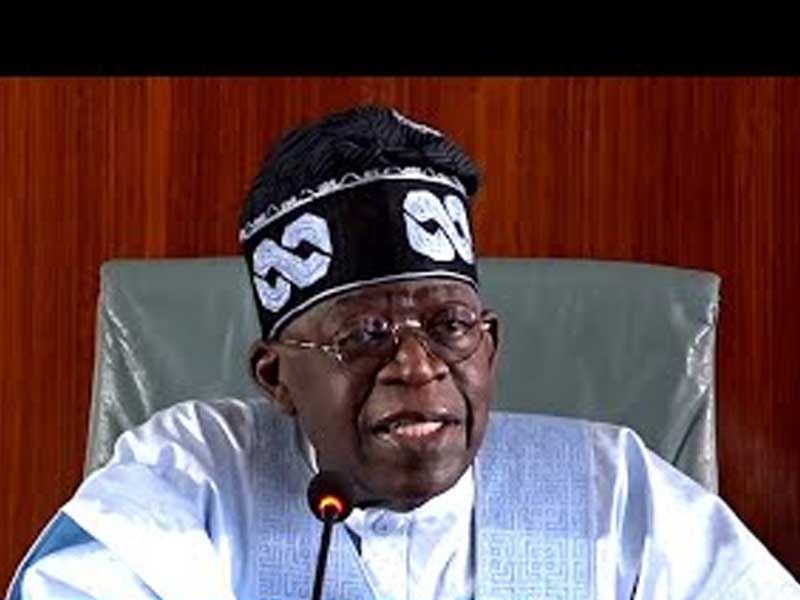A traditional ruler in Oyo state, His Royal Majesty Oba Sunday Oladapo Oyediran, the Onpetu of Ijeru Kingdom has advocated for an adjustment in the revenue sharing formula in the country to favour states above the federal government, which presently takes the highest.
Oba Oyediran made this demand Wednesday at the nationwide sensitization programme of the 36 states and the Federal Capital Territory (FCT) on the review of the current revenue allocation formula in Ibadan.

The monarch who spoke on behalf of traditional rulers in Oyo state averred that the present realities required that states and the local governments assume greater responsibilities, thus the sharing formula should be tilted in their favour as against the present formula in which the federal government takes the highest, though noting that he was by no means canvassing a decentralization of the revenue generation system.

“While I would not be supporting decentralization of the revenue generation system in the interest of even development and peace of this country, it is my opinion that the state and the local government should be saddled with more responsibilities accompanied by a new revenue sharing formula. It is also my opinion that the revenue sharing formula should be reviewed as follows; 28.72% to the Federal Government, 32.68% to the State Government, 24.6% to the local government and 14% as derivation.”
Onpetu, the permanent chairman of Ogbomoso South Traditional Council of Obas and Chiefs further noted, “The current sharing formula in which the federal government takes 52.68 percent, the states are allocated 26.72 percent and local governments, 20.60 percent of the revenue shared, has become grossly inadequate and effete, considering the new realities in respect of responsibilities each tier of government is saddled with.”
He added, “We should also not forget that when the sharing formula in operation was enacted in 1992, we had only 30 states and less than 600 local governments but today we have a 36 state-structure and 774 local governments. Some states have even on their own volition created local community development areas (LCDAs) to take development closer to the grassroots.
“The prevailing circumstances now is the agitation to divest the federal government of some of her responsibilities i.e., reducing the exclusive list and increasing the concurrent list and residual list. Therefore, the review in focus is timely and long overdue.”
The Oba commended the Engr. Elias Mbam-led Revenue Mobilization Allocation and Fiscal Commission (RMAFC), stressing that the “formula currently in use came into effect 29 years ago, in 1992. Engr. Mbam rightly attested to this during a press conference the commission held last week in which he stressed that in the face of the current realities, evolving a new sharing formula has become imperative.”
He observed, “it is essential that more revenue accrues to the third tier i.e., the local government, for the reason that it is the government closer to the people at the grassroots, the most critical group in any country.”
Onpetu emphasized the grassroots is the most important sector of the country, affirming, “I will articulate that grassroots people are even more Nigerian than any other group. This is because everyone begins and ends up as a grassroots man, even the all-powerful President eventually reverts to being a grassroots person and when that time comes, he will want the road leading to his residence promptly rehabilitated when the elements degrade it. So, there is need to adjust the formula in favor of the grassroots.”
The former banker further charged there was the need to come up with ideas to improve the revenue generation in the country while suggesting ways to accomplish this just as he made case for equitable distribution of revenue. “Moreover, there is an urgent need to jack up revenue generation in the country through a combination of factors, in my layman view, these factors include: cutting down on the cost of governance, which currently is on the astronomical side. A review of the remuneration of political office holders, both elected and appointed, as observed during a retreat organized by RMAFC in December 2019 is utterly paramount. And as such, items like payment of severance allowance to certain categories of office holders, jumbo pay, over-bloated civil and public service etc. need to be reviewed downward or some altogether extirpated; states and local governments should be encouraged to broaden their revenue base by stimulating exploitation and utilization of the natural resources deposited in the bowel of their lands; diversification of the economy, introduction of policies that will spike up revenue generation and charting the uncharted such as exploring all our mineral resources optimally, resolving all bottlenecks surrounding Ajaokuta Steel Rolling Mill, Itakpe Iron Ore and constructing modular refineries and other ventures that can improve the economy and the revenue base of the country.
“As we all are aware that the nature and conditions of the financial relations in a federal system are crucial to its survival, the need for equitable distribution of revenue is of supreme importance.”
He stressed the need for the RMAFC to critically examine the recent Petroleum Industry Bill (PIB) 2021 passed into law, asserting this was a huge challenge “as studies need to be instituted to look into the 3% profit from petroleum resources to host communities and 30% to exploration of new ventures. How these will affect the tiers of government revenue needs to be looked into.”
He also clamoured for an analysis of a court case instituted by the River state government in respect of the value added tax (VAT) in order to determine its implication on the federation account.
Earlier in his address the revered traditional ruler traced the history of revenue sharing in the country recalling it started with the introduction of the Richard Constitution in 1946, in the same vein giving the functions of the RMAFC as stated in the constitution.


